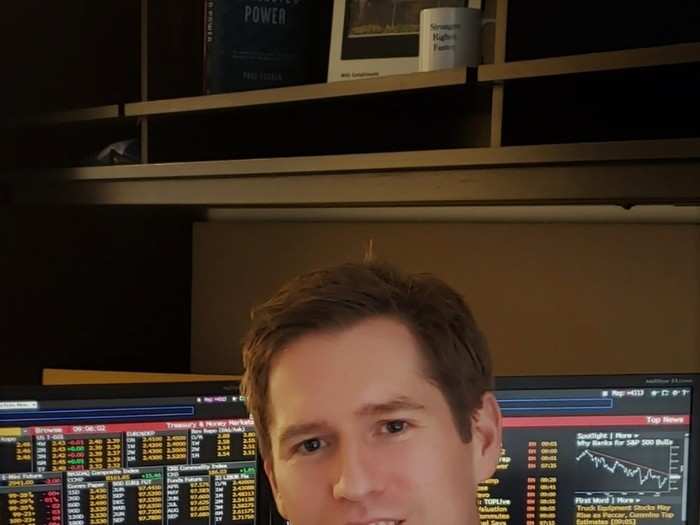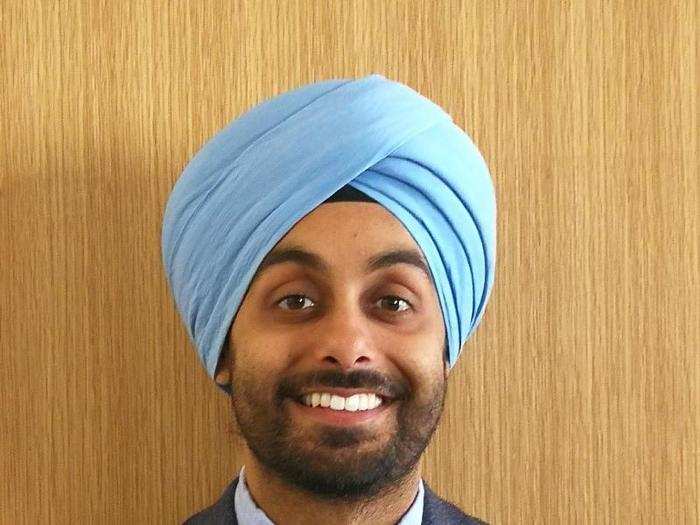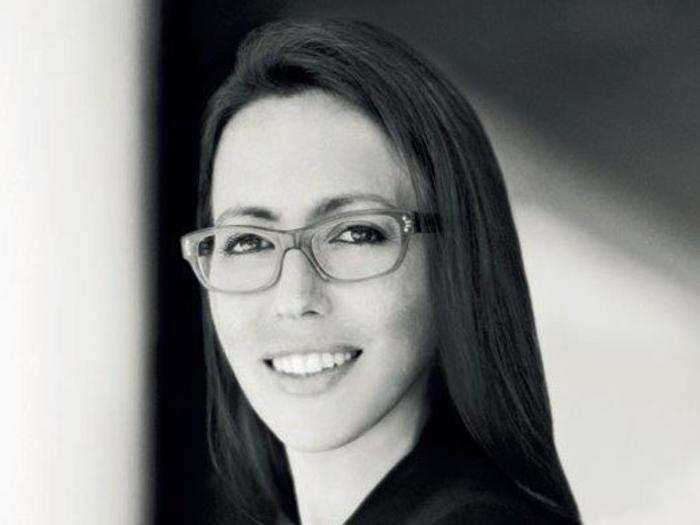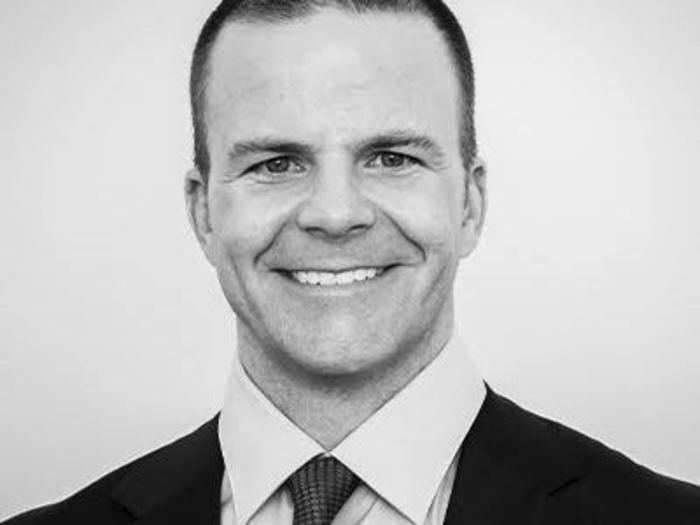- Home
- slideshows
- miscellaneous
- Meet the 5 rising stars presenting their investment ideas at the world's highest-profile hedge-fund conference
Meet the 5 rising stars presenting their investment ideas at the world's highest-profile hedge-fund conference
Angela Aldrich, the founder of Bayberry Capital, is excited about short bets.

Todd Westhus, the founder of Olympus Peak Capital, has been involved in some of the biggest global financial moments of the past decade.

Todd Westhus does not think all his ideas are going to work out. The former Perry Capital and Avenue Capital portfolio manager is more focused on placing his bets on ideas that will either win big if his hypothesis is right or have a soft landing if he's wrong.
"I don't care if I'm right or wrong: I care about how much I can make when I'm right and how much I'll lose if I'm wrong," Westhus told Business Insider. The Duke grad forced his way into the hedge-fund world by walking into Avenue Capital's offices in 2002 and asking for an interview. Until that point, Westhus had been in investment-banking programs at JPMorgan and Morgan Stanley.
"How does someone without any experience get a job at a fund?" he said.
After working at Avenue for four years, he joined Perry Capital, where he has been involved in some of the biggest global financial moments of the past decade: Westhus had a multibillion short on the subprime housing market, placed macro bets when the eurozone was in crisis thanks to Greece's economy crumbling, and invested in Argentina while the country was defaulting on its debt.
See more: Investors are hot on hedge funds again, but old-school stock pickers are getting left in the cold
"At any other fund I would have been siloed," he said, adding he was thankful for Perry letting him "roam."
Those experiences, Westhus said, are the guiding principles of his new firm, Olympus Peak Capital, which has $600 million, but expects to be closer to $750 million by the end of the summer thanks to a couple of large institutional investors that have signed on. "Our strategy is just to be flexible," he said.
Part of that flexibility requires the fund to not get too big, and Westhus said he does not want the fund to get bigger than $1 billion. His former billionaire bosses, Marc Lasry of Avenue Capital and Richard Perry of Perry Capital, are both backers of his new firm.
He didn't reveal much about what his presentation at Sohn will be on beyond saying "it will be controversial."
Parvinder Thiara, the founder of Athanor Capital, is building from the ground up.

With about $1 billion in assets and a staff of 20, Parvinder Thiara's Athanor Capital looks to be on steady ground less than two years after beginning trading. What those numbers don't show, Thiara said in an interview with Business Insider, is how tricky it is to get there.
"The hardest thing that people underestimate is attracting top-tier talent, because you're starting out and competing with top funds for these people," he said.
Thiara was at D.E. Shaw before starting Athanor and has several D.E. Shaw alums on his staff, including COO and chief compliance officer Hilario Ramos. The macro relative value fund's main investors so far have been endowments and foundations, sovereign wealth funds and pension funds, according to Gabriela Teodorescu Bockhaus, Athanor's head of marketing.
Despite large investors already jumping into the fund, Thiara said "we don't have grand visions to become a huge hedge fund with dozens of different strategies."
"Our main aim is to deliver alpha, and to have fun as a team while we do so."
The having-fun part was admittedly tough for Thiara as he worked to get his fund off the ground. "It's stressful, it's hard, but when it comes together, it's worth it," he said.
Now, he says, he sees the "a unique satisfaction that comes from building something from the ground up."
His Sohn presentation will be a macro pitch, not a stock, which he thinks will make it less controversial than some of the other speeches of the day. Still, he expects it to be "certainly different" than anything else presented.
Lauren Nicole Wolfe, the cofounder of Impactive Capital, is an ESG activist.

After a decade of activism work at Blue Harbour, Lauren Taylor Wolfe's new activist fund is focused on more than just improving margins.
Impactive Capital, cofounded by Wolfe and her fellow Blue Harbour alum Christian Asmar, is looking for companies that have room to improve in both the traditional business sense and in environmental, social, and governance (ESG) ratings.
"A lot of investors started to think about ESG as a way to calculate risk, and we find that valuable and interesting, but we wanted to take that a step further," Wolfe said in an interview with Business Insider. The Cornell and Wharton alum just added two more people to her team, to give the firm eight staffers, including analysts from fellow activist funds Trion Management and ValueAct Capital.
The fund received a notable early investment from the California State Teachers' Retirement System of $250 million with a private-equity-like commitment of six years. Wolfe believes the strategy Impactive is using requires a longer time horizon as they push companies to diversify their boards, change their emission polices, and promote more underrepresented groups.
"This is a conversation that is happening in every boardroom," Wolfe said, referring to ESG. She believes Impactive will be able to grow its boardroom influence by offering long-term ESG solutions and proving that her fund is not planning on selling their investment the moment it goes up.
"We wanted to take a different approach to activism — we have a longer time horizon," she said.
Her Sohn presentation is going to be on a company the firm is invested in where Impactive believes there is a chance for operational and ESG changes that will increase the firm's worth.
Matthew Smith, founder of Deep Basin Capital, used to run billions for Ken Griffin.

After running a portfolio worth a reported $3.6 billion for Ken Griffin's Surveyor unit, Matthew Smith has settled into running his own fund, Deep Basin Capital, over the past year and a half.
Smith counts O'Shaughnessy Asset Management as an investor in the more than $900 million fund, which does a mix of fundamental and quantitative research on energy investments. The fund, according to a spokesperson for Smith, is named after a term coined by geologist John Masters in the late 1970s to describe the discovery of a rare, enormous accumulation of trapped natural gas in Western Canada.
Before working at Citadel for about six years, Smith worked for Highfields Capital, JCK Partners, and Copper Arch Capital, according to his LinkedIn. He went to the University of Iowa for his bachelor's and received his master's in finance from the University of Wisconsin.
The Stamford, Connecticut-based manager has 13 people on its team.
See more: Inside the Chicago hedge-fund turf war between billionaire Ken Griffin and Dmitry Balyasny
Popular Right Now
Popular Keywords
Advertisement